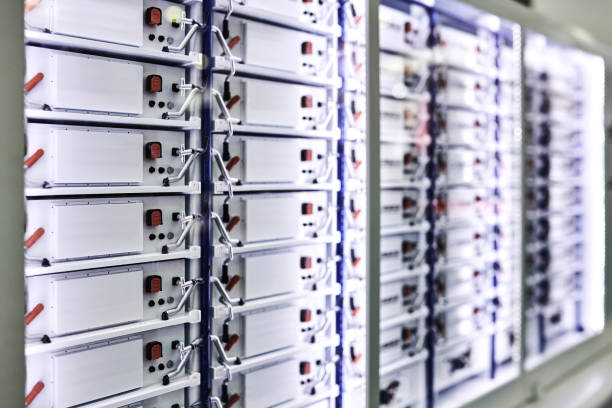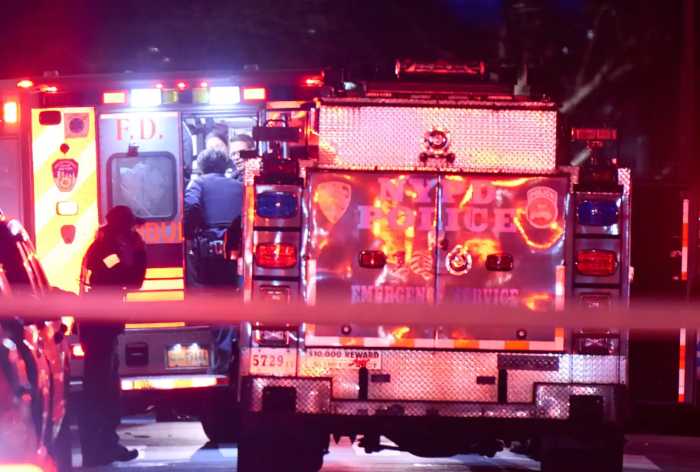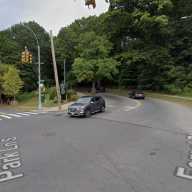A recent op-ed article in the media outlet amNewYork extolled the benefits of lithium-ion Battery Energy Storage Systems (BESS) to the Queens community. As residents of Queens who are being asked to live with BESS next to our homes, we feel compelled to present another perspective.
BESS is a type of technology that uses a group of lithium-ion batteries to store energy. The premise is that the BESS will store solar and wind energy during overnight hours and sell that clean energy to local utilities during hours of peak usage (such as on a hot summer day), thereby easing the pressure on the energy grid during those peak hours.
Many discussions of the issues surrounding BESS present this as a binary choice – either you favor BESS or you do not. However, homeowners feel that there are ways for these facilities to be located so that their benefits can be realized without the risk of lithium-ion battery fires threatening their lives or their property – there should be a suitable distance between these “Battery Farms” and our homes.
Most New Yorkers have seen stories about lithium-ion fires and the destruction that they wreak. Most lithium-ion battery fires reported in the media are from unregulated batteries on e-bikes. However, the batteries in the BESS undergo more stringent scrutiny by the FDNY. They are safer than e-bike batteries, but even BESS developers and FDNY officials admit that they cannot guarantee that a fire will not break out at a BESS facility because the technology is so volatile. As stated by Baker Risk Consultants, a globally respected risk management company providing hazard mitigation, “There is no one solution or design (of BESS) that is inherently safe, i.e., that cannot go into cascading thermal runway fire.”
While there have been no recorded BESS fires yet in NYC, there have been fires in New York State and elsewhere. In 2023, there were three BESS fires in New York – in upstate Warwick, in Jefferson County and in East Hampton, Long Island. In January 2025, there was a huge lithium-ion battery fire at a BESS facility in Moss Landing, California, that burned for five days. Roughly 1,500 people had to be evacuated. Admittedly, this facility is much larger than most BESS facilities being built in NYC, but when they catch fire, the same dangers exist. Most Long Island municipalities have declared moratoriums to prevent BESS from being built there, and in April 2025, Nassau County Executive Bruce Blakeman and county fire marshals held a rally to keep BESS out of Nassau County.
Queens neighborhoods are burdened by freight rail. Old high-polluting freight trains hauling toxic waste in uncovered rail cars (in violation of a 2023 state law) operate by homes, with many documented accidents and track fires. The possibility of these lithium-ion batteries being transported by rail has inherent risks and harms. In April 2025, the Sheet Metal Air Rail Transportation (SMART) union’s Transportation Division strongly opposed Tesla’s special permit request to ship these batteries by rail.
NYS and NYC, in their drive to meet energy demands, have essentially allowed BESS facilities to be built in any residential community in NYC “as of right.” This means they do not have to undergo city environmental or land use procedures (ULURP), nor do they have to notify elected officials, community boards or their potential neighbors of their plans. They must receive permits from the FDNY and the Buildings Department. The FDNY review is stringent and considered the “gold standard” in the industry, but it is not foolproof. A retired fire department inspector, after detailing the redundancies of protection that the FDNY requires of BESS, also admitted, “I would not want to live next to one”.
However, that is what residents in southeast Queens are being asked to do – live with lithium-ion BESS facilities, in some instances, less than ten feet from their homes. One company, NineDot Energy, is proposing to build a number of lithium-ion BESS facilities in Southeast Queens. Most of these facilities will be built within five to ten feet of residential homes. The company NineDot is basically a startup located in a business incubator in Brooklyn. Their first lithium-ion BESS facility became operational in August of 2023, which means they have less than two years of operational or safety experience in operating these potentially hazardous facilities. In short, their history is thin. One of their planned facilities at 180th Street and Linden Boulevard in Queens is on the site of a former gas station where 16 underground gas tanks were left to leak and corrode for decades after the gas station closed. The BESS will be on the same parcel of land as a welding shop that uses flammable equipment and a tire shop. If there were a required public review process, it is highly unlikely that this site would be approved.
In an effort to compromise with Ninedot, the community located five properties for rent or lease in an industrial area within a few blocks of their proposed site, but away from homes for the company to consider as an alternate site. When presented with these alternatives, NineDot indicated that they were aware of these sites and planned to build a BESS on one of them, but still planned to build another BESS next to our homes. In a bizarre twist, NineDot has been offering the homeowner closest to the Linden Boulevard site (within five feet) escalating amounts of money to be able to encroach on their property. When the homeowner refused their offers, NineDot’s attorneys sent a letter threatening to sue the homeowner to demand access to the homeowner’s property in order to build their privately owned lithium-ion BESS. This is truly bizarre and frightening, with no regard for the homeowner.
The residents of southeast Queens believe that BESS can be a tool in solving our energy needs, but we also believe that the safety of families and the protection of our homes is paramount. We know that the short history of BESS technology and some high-profile loss events can make insurers cautious, potentially impact property insurance availability and costs and can impact property values. Putting some distance between these facilities and residences is critical in addressing these concerns. We urge the industry to redouble its efforts to move to solid-state batteries or other technologies deemed to be safer than lithium-ion. We support legislation in the state legislature (S7197-Addabbo/A6955– Williams) which would require that there be a distance between BESS facilities and residences and would mandate a public review process prior to their placement. We urge our elected officials to support this legislation.
We believe that BESS can play a role in strengthening our energy system, but residents should not have to sacrifice their peace of mind for clean energy.
Respectfully,
Southeast Queens Residents Environmental Justice Coalition
Addisleigh Park Civic Organization
Brinkerhoff Action Association
St. Albans Civic Improvement Association
Greater Triangular Civic Association
149th South Ozone Park Civic Association
Inwood Street Block Association
The Octagon Neighborhood Association
Community Block Association
Alvista Towers Tenants Association
Spring Gar Community Civic Association
Justice and Witness Committee – St Albans Congregational Church
Proctor-Hopson Post #1896, Veterans of Foreign Wars
Edward Gourdin Post #5298, Veterans of Foreign Wars
Benjamin Moore Post #1946, American Legion
Amvets Post #1013
St. Albans Alpha Streets Association
Civics United for Railroad Environmental Solutions
146th Street Block Association
116th Street Block Association
Concerned Neighbors of 146th Street
St. Albans Chamber of Commerce




































